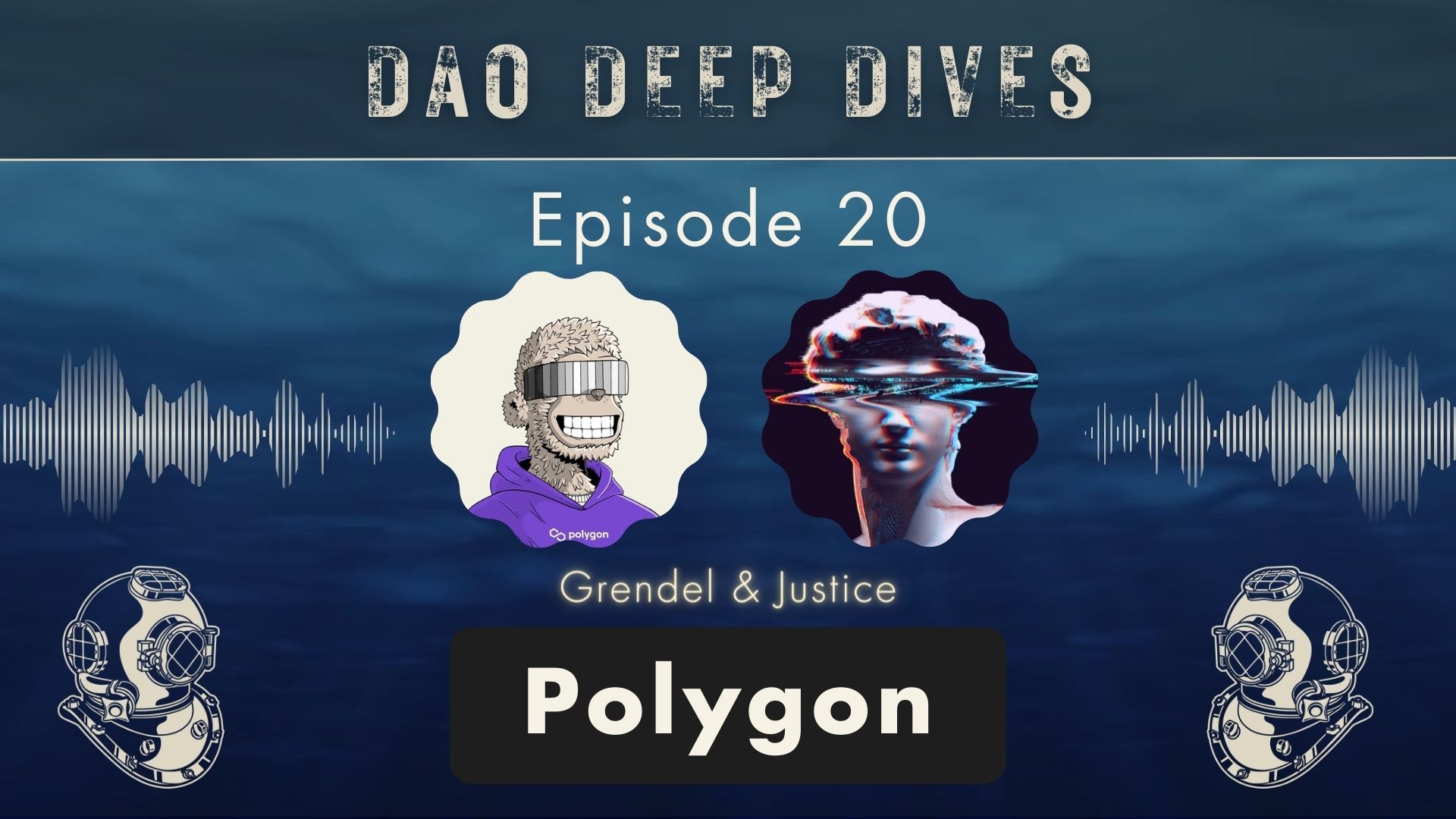This week we talked to Grendel and Justice from Polygon.
Listen or Watch!
Subscribe now to never miss an episode again.
If you prefer you can also watch the video podcast.
The evolution of the internet...
...has brought about significant changes in the way we interact, communicate, and conduct business. From the early days of static websites to the rise of social media and e-commerce platforms, the internet has transformed various aspects of our lives. However, as we enter a new era with the emergence of Web3 and decentralized technologies, we face new challenges in scaling adoption and building the tools necessary to support the vision of the future of the internet.
In a recent episode of our podcast, we sat with Justice and Grendel from Polygon Labs, two experts in the field of decentralized autonomous organizations (DAOs). They delved into the challenges of scaling adoption of Web3 and the underlying tools needed to support the future of the internet. The insights shared in this episode shed light on the exciting developments happening in the DAO space and the role that Polygon is playing in shaping the decentralized landscape.

One of the key challenges discussed in the episode is the need for scalability. Traditional blockchain networks like Ethereum have faced limitations in terms of transaction speed and cost. To overcome these challenges, Polygon has introduced a groundbreaking solution called Polygon 2.0. This upgrade involves the deployment of individual shards per product, company, or DAO, enabling shared liquidity and seamless composability. By leveraging ZK rollups and Validium, Polygon aims to create a unified chain where transactions are fast, affordable, and efficient. This scalability is crucial for the widespread adoption of Web3 applications and the realization of the future internet.

Another challenge discussed in the episode is the bridging of decentralized liquidity across chains and even centralized organizations seamlessly. While Web3 technologies aim to decentralize various aspects of the internet, it is essential to find a balance between decentralization and user accessibility. With Polygon's upgraded infrastructure, centralized exchanges may have the opportunity to open up access to decentralized liquidity, creating a more seamless experience for users. This integration of centralized and decentralized elements can potentially drive mainstream adoption of Web3 technologies.

The conversation also touched upon the importance of governance in the Web3 ecosystem. As DAOs gain prominence, it becomes crucial to establish effective governance mechanisms. Polygon is taking a community-driven approach with its three-pillar strategy for Polygon 2.0. The pillars include community treasury governance, system governance, and protocol governance. Through these pillars, Polygon aims to empower its community to actively participate in the growth and development of the network. This emphasis on community involvement and governance aligns with the decentralized nature of Web3 and ensures that decisions are made collectively, fostering inclusivity and transparency.

The vision for the future of the internet is a decentralized and interconnected ecosystem where individuals have more control over their data, transactions are frictionless, and trust is established through cryptography. However, achieving this vision requires collaboration, innovation, and widespread adoption of Web3 technologies. The conversation in this episode highlighted the progress being made in the space and the exciting opportunities that lie ahead.




